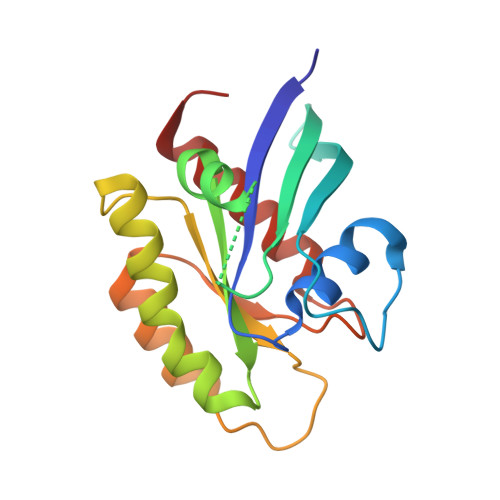Novel K-Ras G12C Switch-II Covalent Binders Destabilize Ras and Accelerate Nucleotide Exchange.
Nnadi, C.I., Jenkins, M.L., Gentile, D.R., Bateman, L.A., Zaidman, D., Balius, T.E., Nomura, D.K., Burke, J.E., Shokat, K.M., London, N.(2018) J Chem Inf Model 58: 464-471
- PubMed: 29320178
- DOI: https://doi.org/10.1021/acs.jcim.7b00399
- Primary Citation of Related Structures:
6ARK - PubMed Abstract:
The success of targeted covalent inhibitors in the global pharmaceutical industry has led to a resurgence of covalent drug discovery. However, covalent inhibitor design for flexible binding sites remains a difficult task due to a lack of methodological development. Here, we compared covalent docking to empirical electrophile screening against the highly dynamic target K-Ras G12C . While the overall hit rate of both methods was comparable, we were able to rapidly progress a docking hit to a potent irreversible covalent binder that modifies the inactive, GDP-bound state of K-Ras G12C . Hydrogen-deuterium exchange mass spectrometry was used to probe the protein dynamics of compound binding to the switch-II pocket and subsequent destabilization of the nucleotide-binding region. SOS-mediated nucleotide exchange assays showed that, contrary to prior switch-II pocket inhibitors, these new compounds appear to accelerate nucleotide exchange. This study highlights the efficiency of covalent docking as a tool for the discovery of chemically novel hits against challenging targets.
- Department of Cellular and Molecular Pharmacology, Howard Hughes Medical Institute, University of California, San Francisco , San Francisco, California 94158, United States.
Organizational Affiliation:




















